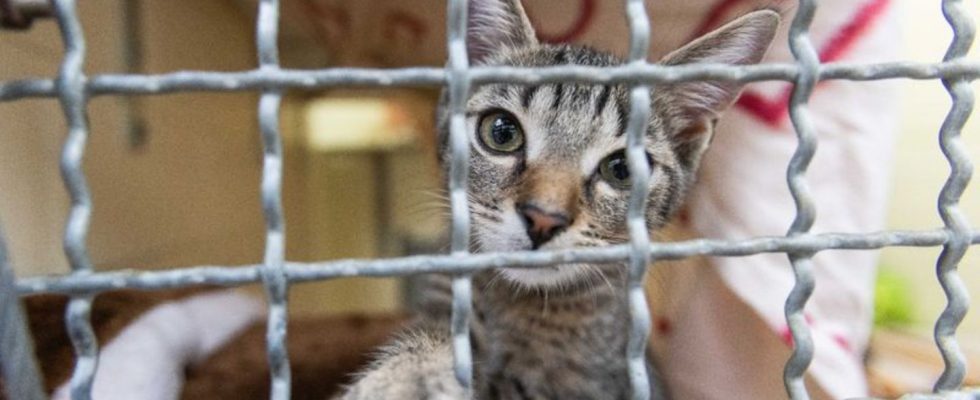Animals
Animal shelters are desperate: overcrowded and in deficit into the new year
Animal shelters in different regions used to exchange animals – but now they are all full. photo
© Philipp von Ditfurth/dpa
The animal shelters are not overcrowded because many more animals are being surrendered. The reasons are more varied – and those responsible are increasingly at a loss as to how the homes can continue to be financed.
There is good news, but it’s actually not good news at all: After Christmas, there are no longer many animals given away as gifts that are abandoned like before. There is no longer a wave of donations like that just before the long summer holidays, as Thomas Schröder from the German Animal Welfare Association says. But the Animal shelters in Germany are still full. Permanently full. And those responsible are frustrated.
“The situation in the animal shelters has become even more negative,” Schröder told the German Press Agency. “Certainly three quarters of the animal shelters can no longer take in any animals. We have more and more animals there that stay longer and have a greater need for care.” The reasons for this are diverse.
For example, dog schools were closed during the peak of the pandemic. “So no one could get help when they took in a new dog,” explains Schröder. “We have a relatively large number of good, but poorly behaved dogs in animal shelters.
Pandemic run on pets has clogged the market
Even dogs that are taken away from their owners by veterinary offices are often permanent guests. “First of all, the animal cannot be rehomed because the owner usually sues,” says the association president. “And even if the release is clarified: We have long-sitters in the animal shelters who are peaceful, who are wonderful, but who belong to a breed that cannot be kept in the state where they were picked up.”
Animal shelters in different regions used to exchange animals – but now they are all full. In addition: “There is a lack of qualifications in the animal shelters. Dealing with difficult dogs, for example, is not included in the usual animal care training,” said the president of the association with 550 animal shelters and rescue centers.
But according to Schröder, there is currently no market even for dogs, cats or rabbits that would be easy to adopt. “Anyone who wanted a pet got one during the pandemic – and anyone who didn’t want one gave it away and didn’t get a new one.”
Higher vet costs for a year
Facilities face these problems when their budgets are constantly too low. Most homes did not receive cost-covering financing from the veterinary offices or municipalities, said Schröder. In addition, the financing looks different in every municipality – sometimes a home manager has to negotiate individually with each mayor in the district. “We are subject to insane bureaucracy.”
The financing has been made worse by the new fee regulations for treatments by veterinarians, which came into force in November 2022. As a further result, facilities report that older or sick animals with high veterinary costs are now more likely to be given away.
Schröder therefore has one wish: more help from municipalities, states and also the federal government, although the federal government has not yet been directly involved in the financing. “It’s strangling us from many sides at the moment. The animal shelters are at the limit of their capabilities. We need support.”

